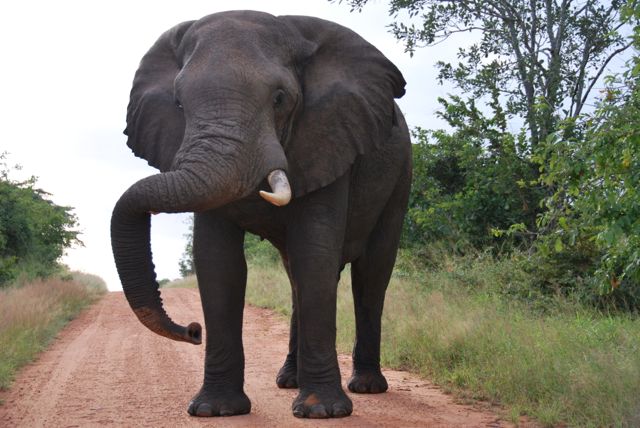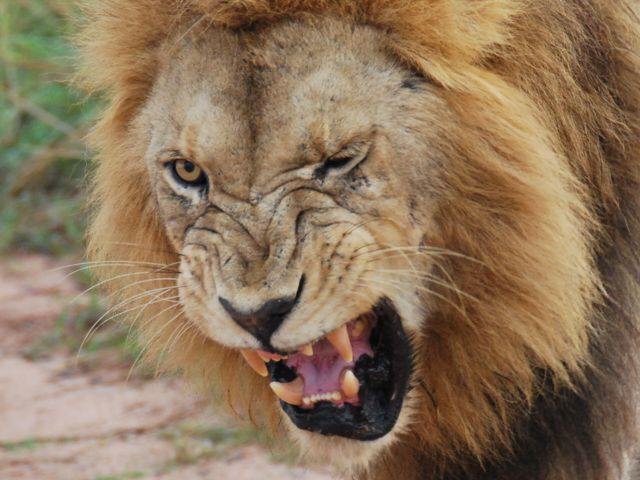Things to know about Africa
Thirteen weeks and 14,000+ kilometers later I have managed to travel through 6 countries of Southern Africa. When you tackle an expedition like this, you encounter snippets of information that would’ve been extremely useful to know before embarking on such a journey. So, from my brain to yours, here is a list of things to know about Africa, before you travel.
If you want to go on your own adventure through Africa, you might want to have a look at 4×4 hire to find the best vehicle for your adventure.
Things to know about Africa – My observations
- Africa is huge, and if you try and cram too many things into a short space of time, you’ll miss the little things. Rather travel less to experience more. By this I mean, don’t spend most of your time driving between destinations. Rather cut a country out of your itinerary and spend more time smelling-the-roses in the other countries.
- With varied road conditions which include potholes and corrugation on African roads, distances should be measured in hours, not in kilometers. For example, in Zambia, it took me 3 ½ hours to drive 100km between South Luangwa National Park and Chipata because of road conditions that called for a slow speed.
- Before you decide to start your journey, make sure that you’ve planned each day properly. Often campsites are far and few between, so planning a time schedule is important to avoid having to do roadside bush camping.
- Don’t try and drive for an entire day and arrive in the dark. Pitching a tent in the dark is no fun. Arriving at your spot at about 3 pm gives you enough time to pitch your tent, sort your spot and crack a cold one.
- One of the important things to know about Africa is that if you intend on driving at night, you’ve lost your marbles! Cattle, donkeys and warthogs crossroads at night all the time in Africa, making it extremely dangerous.
- With driving all day and sitting down to drinks around the campfire in the evenings, you may not be getting enough exercise. Be as active as you can without endangering yourself. Wild animals roam in Africa so unguided nature walks into the bush may start with the good intention of shedding a few pounds, but if you encounter a hungry wild animal you may lose more than you were hoping to.
Things to know about Africa – Health conscious
- Most places in Africa have access to water, but it for travelers, drinking it isn’t a good idea. Drink bottled water or boil all water before it goes down the hatch. The last thing you’ll want is unfamiliar bacteria giving you diarrhea.
- Parasites, bacteria love traveling with you so it’s best to try and wash yourself and your clothes every day to avoid spreading the nasties.
- One of the few very important things to know about Africa is that Malaria is real and it takes lives. Malaria-carrying mozzie hovers around waiting to bite the unprepared, so use DEET repellent and remember to take your anti-malaria tablets. If you aren’t keen on taking a chemical anti-malaria compound, there are herbal equivalents available. Only yesterday, we were told that five staff members working at the Wildlife Camp Luangwa where I was staying had been whisked off to a hospital with malaria – so no-one is immune.
- There’s no room for being blasé’about wildlife. There’s nothing like the wake up call of hearing that four people have already been killed this year by elephants in South Luangwa. When you’re out in the bush you’re in the territory of elephants, hippos and hyenas, and more. If they feel threatened or annoyed by your presence, they’re going to do something about it. If you happen to have a close encounter, just stay where you are quietly and they will generally leave you alone.
Above: Four people have already been killed this year by elephants in South Luangwa.
Things you should know about Africa – Moneywise
- Traveling in Africa gets more expensive than you think- especially some of the National Parks. You can expect to spend about USD$100 per day on everything. On some days you can easily spend more than USD$100 if you include National Park fees, a game drive, the odd curio and a meal at a restaurant. Being prepared for this is one of those things you should know about Africa before you decide to travel.
- Fuel (diesel) averages USD$1.45 per liter. In Zambia USD$1.65 per liter. It is a major expense when you are traveling long distances. My Land Rover Defender is averaging 11.5 liters per 100kms and has so far used 1,665 liters of diesel.
- In Botswana and Zimbabwe you can expect to pay about USD$25 per day for a camping spot, however, it gets cheaper as you travel North East to Zambia and Malawi where you can expect to pay about USD$15 per day.
- Botswana and Zimbabwe are quite a bit more expensive than Namibia, Zambia or in fact South Africa. In Victoria Falls, Zimbabwe, you’ll pay close on R200.00 for a Spur chicken burger and a dom Pedro – a meal that you’ll find for half the price in South Africa.
- In Zimbabwe, ATM’s are often out of cash. Banks don’t cash travelers’ cheques, and stores don’t accept them. Western Union money transfer does exist if stuck. So bring enough cash (in USD$’s) to last the trip. Also, bring at least $100 in single $1’s – you will need them to make life easier.
Things to know about Africa – Social issues
- Everyone in Africa wants to help you. I’ve met the friendliest people, with the best attitudes on my travels. All through these past 3 months, 6 countries and remote areas, a feeling of safety and goodwill have been strongly felt.
- Even though the people I have encountered have been great, it is always important to watch yourself and your belongings in cities and large towns. All it takes is one bad egg to ruin your feeling of safety. Don’t give them the opportunity.
- Street vendors hang out at supermarkets and outside traveler accommodation where rich “muzungus” are targeted as potential buyers. All you can do is be polite, firm and walk on by. You can’t please everyone all the time.
- When at a border crossing, remember to be patient, friendly and polite. Officials are easily annoyed and will decline your entry if you give them the slightest bad attitude.
- People are extremely grateful for any food or clothes you swing their way. Recently when staying in Victoria Falls I gave the security guard a soda because it was a hot day – I didn’t carry my heavy backpacker’s bag anywhere for the rest of my trip. Bless.
- One of the funny things to know about Africa is if you think you’re stopping in the middle of nowhere, with no trace of life for the last 50 kilometers, black faces will appear in the bushes within 10 minutes of stopping – Phineas’ Law.
- Curious and reticent, locals will walk by with a straight face. However, once you’ve broken the ice with a wave, smile or greeting in their language it’s all smiles and hospitality.
Things to know about Africa – Officials and borders
- Those working at borders are often friendly, but can also be indifferent. We have traversed, 27 police roadblocks so far and have not had too many hassles. Mostly they just wave a foreign vehicle through. Having all the necessary paperwork and requirements met for each particular country is vital. For example, in Zimbabwe, you need to have white reflectors on the front of your vehicle and red reflectors at the back. In Zambia, you’ll need a yellow safety vest, two red warning triangles and two fire extinguishers. In Mozambique, you need a yellow triangle sticker.
- Patience is the key at border crossings. It’s just one of those very important things to know about Africa if you want to travel without hassles.
- We have not paid one bribe so far, nor will we if we can help it. (This meant a threat to wait all day at Chirundu if we had to). Cigarettes don’t count – have a pack or two even if you don’t smoke – they go a long way.
Above: At border crossings, patience is important to avoid hassles
Want to have the same experience as Stan and Marianne but don’t want to buy a 4×4? Then hire a fully equipped 4×4 from us. Our consultant will guide you through the entire process and will give you great advise on the different options.
Related Posts
Which Luxury SUV Should You Hire in South Africa?
For many local and international travellers, luxury SUV hire is the best way to get around South Africa. Whether you’re sticking to city streets or heading into the countryside, luxury SUVs give you the perfect combination of comfort and capability. Drive South Africa offers a range of luxury SUV hire options. Your toughest decision will […]
Read MoreGreat Riverside Locations for a Holiday In South Africa
South Africa is a splendid destination for riverside holidays, offering a diverse range of experiences and accommodations to cater to different tastes and budgets. These diverse destinations ensure an equally diverse range of activities, and a wealth of wildlife encounters and sightings, as well as the wonderfully scenic locations, add to the magic. South […]
Read More5 sensational Western Cape campsites
Whether you’re looking for a private stand with your own loos and views, a river to swim or a crashing surf to stand you to sleep, we’ve got a campsite for you. Dwarsberg Trout Hideaway, Rawsonville Dwarsberg Trout Hideaway is the perfect place for function, fly fishing, and family getaway. There are seven campsites on […]
Read More Rating: 4 - 1562 Reviews
Rating: 4 - 1562 Reviews




